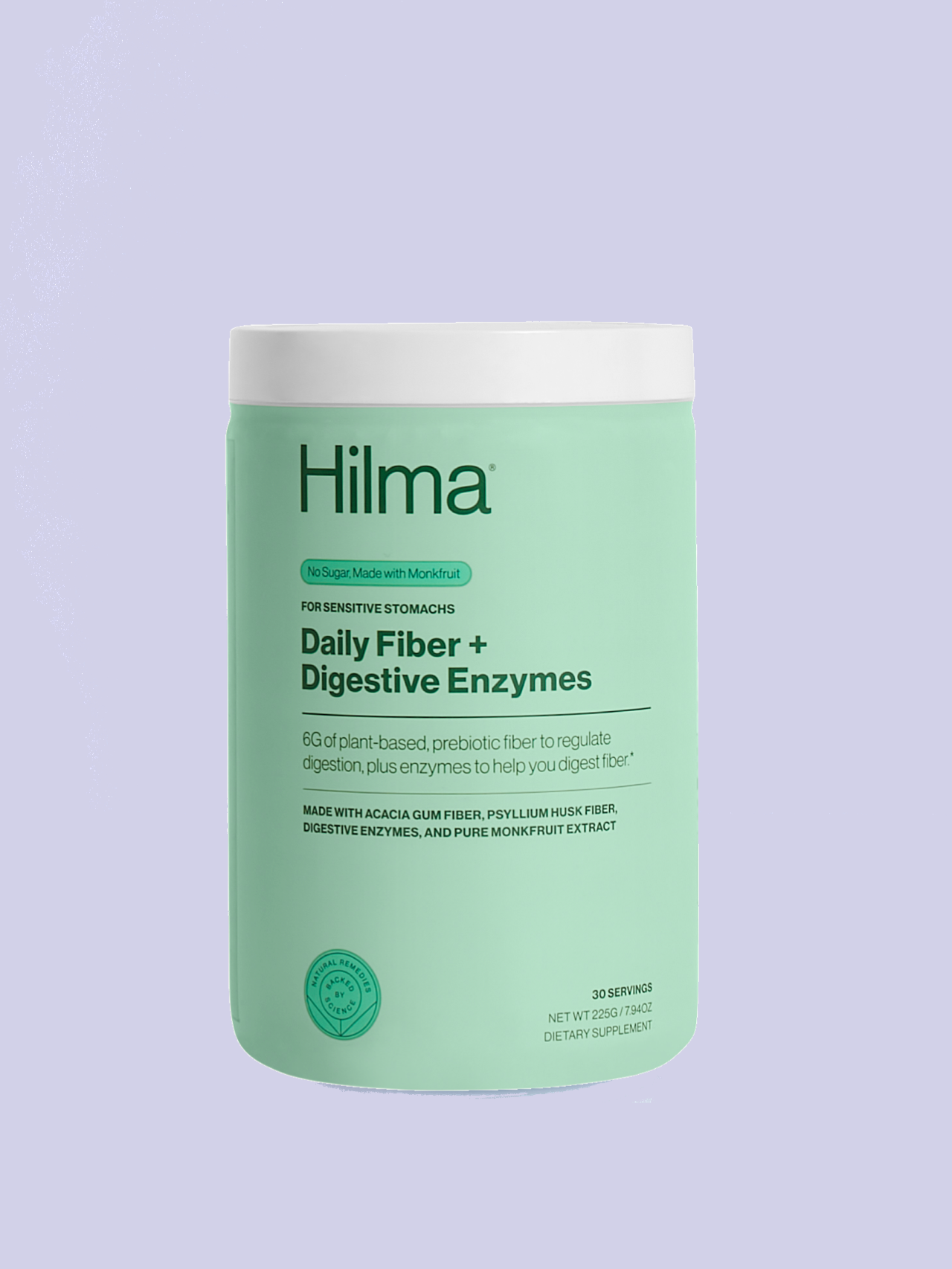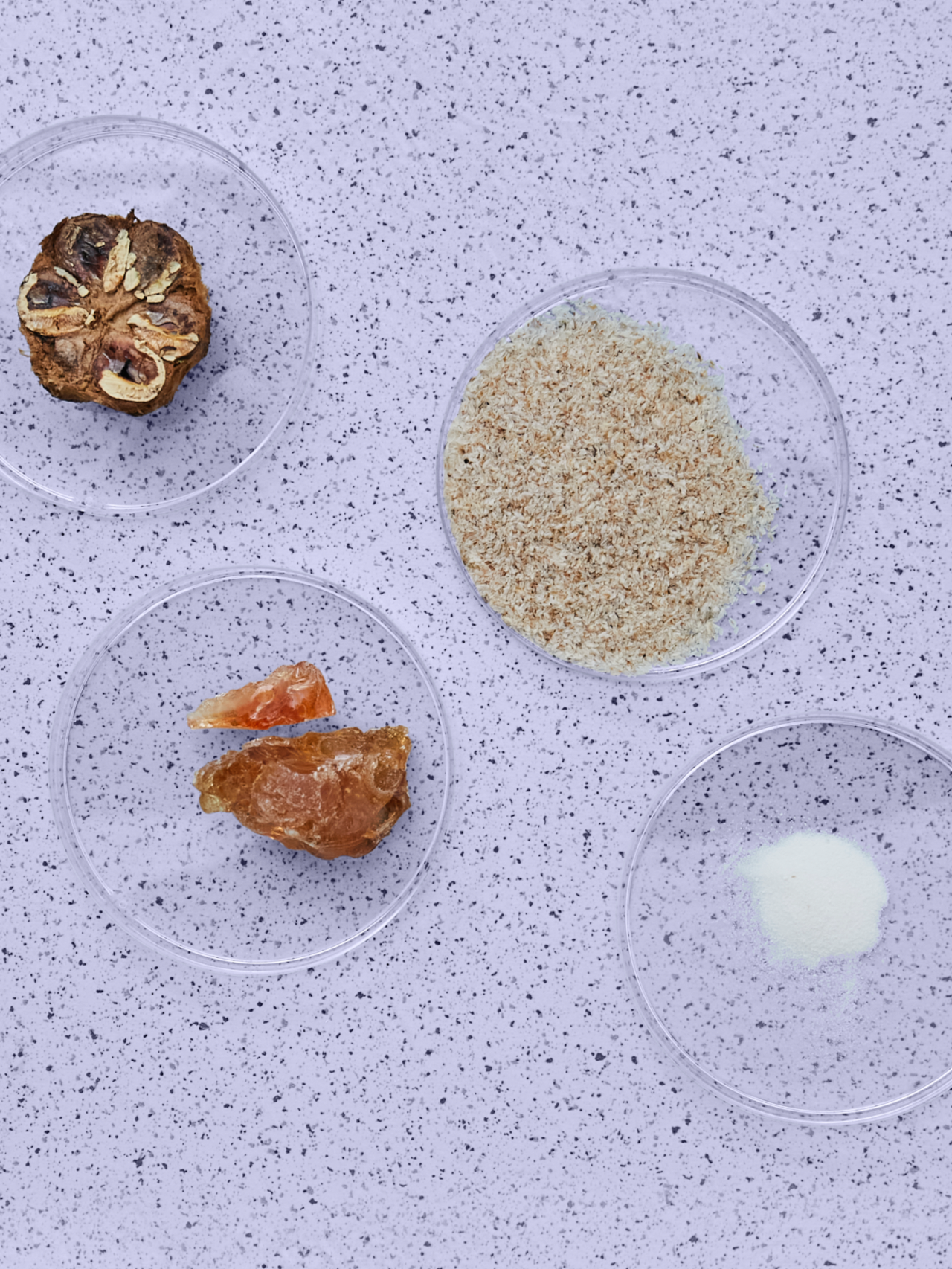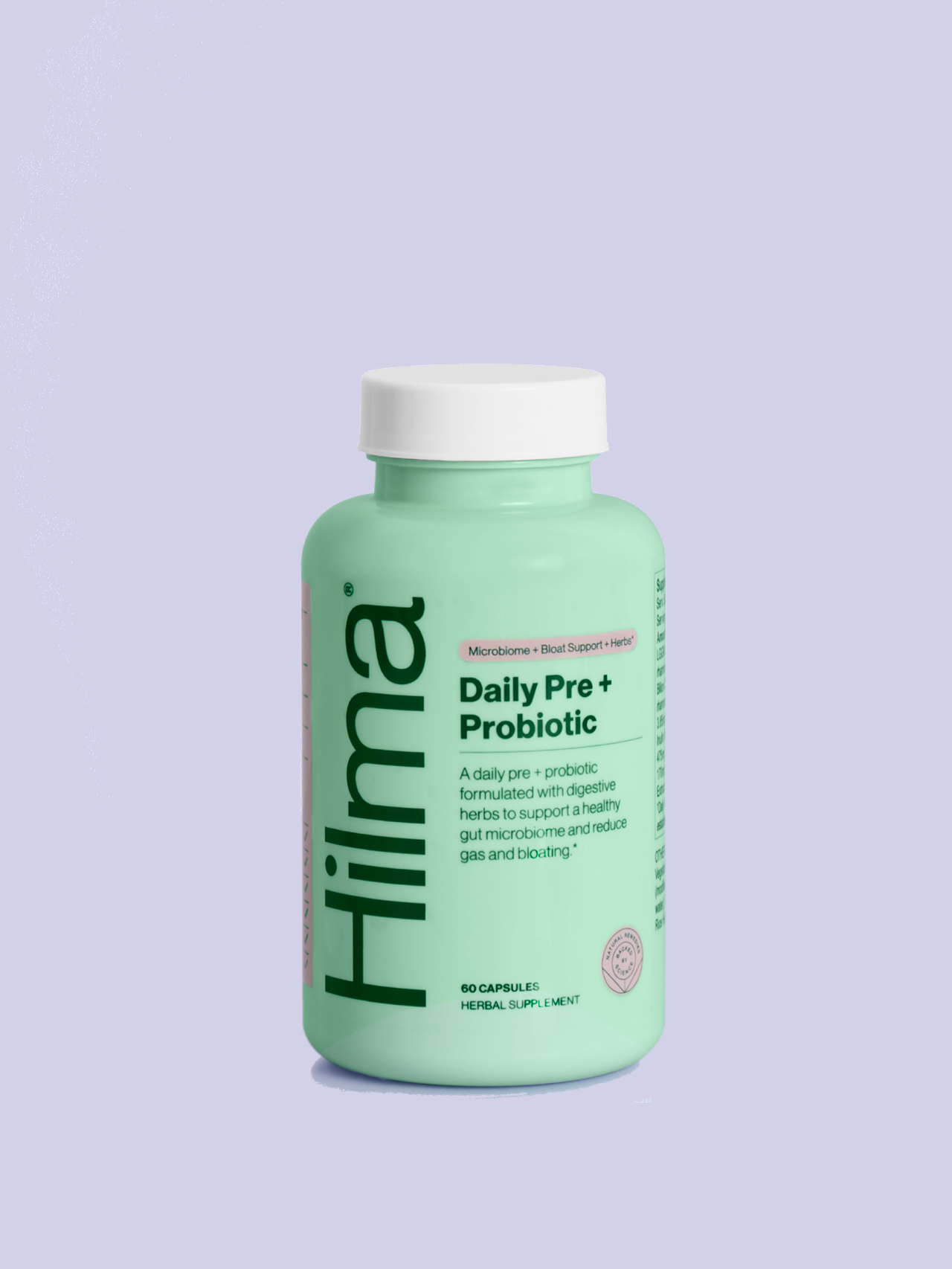
Wondering if your bloated belly and digestive issues could be related to your hormones? Studies show that hormones and gut health affect each other. Endocrine Disruptors Chemicals (EDCs) could not only be throwing your hormones off kilter but also making a mess of your gut microbiome.
Endocrine (aka hormone) disruptors are chemical contaminants in the environment that mimic our own natural hormones, and in doing so, scramble the messages our cells are giving to each other. Endocrine disrupters are chemicals found in plastics, pesticides, cigarette smoke, water supply systems, hormones used to grow our foods, and more. Chemicals like bisphenol A (BPA) and phthalates are often found in plastic products. These substances can leach into food and beverages, especially when heated. Even hand sanitizers and toothpaste commonly contain a chemical called triclosan, which is an endocrine disruptor.
They can have an impact, from minor to major, and most frequently, mimic estrogen. These mixed messages can cause the imbalances behind most of the hormonal conditions women experience and can play a role in serious diseases, including diabetes and cancer.
Here, the team at Hormone University answer our questions about the relationship between endocrine disruptors, hormones, and gut health.
How do endocrine disruptors affect gut health & digestion, specifically?
According to a recent study out of France, endocrine disruptors affect and alter the gut microbiome. They damage good bacteria in the microbiome. Gut microbiota has also been shown to transform certain endocrine disruptors, specifically certain environmental pollutants, increasing their toxicity.
When our gut microbiome is unhealthy, we feel it! Symptoms such as bloating, discomfort, fatigue, eczema, acne, gas, constipation, diarrhea, and heartburn can occur when our gut cannot properly process and break down food and eliminate waste. You can also experience depression, anxiety, and mood swings since the good bacteria in the gut support the production and regulation of mood-enhancing chemicals like dopamine and serotonin.
Gut Hormone Disruption: Endocrine disruptors like bisphenol A (BPA) and phthalates can interfere with gastrointestinal hormones such as ghrelin, leptin, and insulin, which regulate appetite, digestion, and nutrient absorption. These disruptions can alter gut motility, potentially leading to constipation, diarrhea, bloating, or other gastrointestinal discomforts.
Microbiome Imbalance: Endocrine disruptors can disturb the gut microbiota composition by reducing beneficial bacteria and promoting the growth of harmful bacteria. For example, BPA and pesticides have been linked to dysbiosis, an imbalance in gut flora that contributes to inflammation and poor digestion.
Increased Gut Permeability (“Leaky Gut”): Chemicals such as BPA, heavy metals, and certain pesticides may weaken the gut barrier, making it more permeable. This "leaky gut" can allow toxins and undigested food particles to pass into the bloodstream, triggering inflammation and immune responses that affect digestion. This ongoing inflammation can impair nutrient absorption and contribute to digestive issues like bloating, gas, and discomfort.
Insulin Resistance and Blood Sugar Imbalances: Exposure to endocrine disruptors can lead to insulin resistance, which can disrupt blood sugar levels. These fluctuations can cause digestive symptoms like nausea, dizziness, and bloating. Blood sugar imbalances may also disrupt appetite-regulating hormones, causing unpredictable hunger and satiety cues that can further complicate digestive processes.
Effects on Stress Hormones: Endocrine disruptors can increase cortisol levels, which in turn affects gut function by disrupting the balance of stomach acid and digestive enzymes. This may lead to symptoms like acid reflux, bloating, and slower digestion. And lastly, high cortisol and stress hormones can suppress immune function in the gut, making the gut more susceptible to infections and chronic digestive issues.
How do hormones relate to gut health?
Hormones and gut health have a cyclical effect on one another. When gut health is off, hormones become imbalanced.
The gut microbiome is influenced by sex hormones, especially estrogen and it also plays an important role in regulating estrogen. These hormones affect the diversity and balance of gut bacteria, as the microbiome has receptors that respond to them. Fluctuations in these hormones, particularly during menstruation, pregnancy, and menopause, can alter gut bacteria composition and potentially cause symptoms like bloating or constipation. Studies extrapolated that poor gut health is linked to a higher risk of estrogen-related diseases like endometriosis, PCOS, and breast cancer.
Nearly all of the hormone serotonin, a feel-good hormone, is created and stored in the gut. When hormones are imbalanced, people are more likely to feel anxious or depressed due to dips in serotonin.
High levels of cortisol from chronic stress can disrupt the balance of gut bacteria, favoring harmful bacteria over beneficial ones. This can lead to dysbiosis, which is associated with digestive issues, inflammation, and even immune dysfunction. Prolonged high cortisol can also damage the gut barrier, promoting leaky gut and inflammation, which are linked to conditions like irritable bowel syndrome (IBS) and other digestive issues.
The gut also affects the thyroid, healthy cholesterol levels, inflammation levels, and other sex hormones. This is why it is so important to restore gut health!
What are the key symptoms of hormonal imbalance?
There are several symptoms that point to you suffering a hormone imbalance.
While some symptoms differ between the sexes, here are some of the most common symptoms to be aware of:
-
Fatigue: Persistent tiredness or feeling drained can indicate adrenal or thyroid issues.
-
Weight fluctuations: Unexplained weight gain or weight loss or difficulty losing weight can stem from imbalances in thyroid hormones, cortisol, or insulin
-
Digestive symptoms: Constipation, bloating, or diarrhea may be due to cortisol imbalances, which impact gut health
-
Cold or Heat Intolerance: Sensitivity to cold or heat can indicate thyroid imbalances, affecting the body’s ability to regulate temperature.
-
Skin changes: Darkened skin in your armpit or the back and sides of the neck can be a sign of insulin resistance. Acne or an increase in oily skin can be linked to estrogen and testosterone while dry skin can be due to low thyroid hormones.
-
Mood changes: Depression, anxiety, irritability, or unexplained mood swings can result from imbalances in cortisol, estrogen, progesterone, or thyroid hormones
-
Sleep issues: Trouble falling asleep, staying asleep, or waking up feeling unrefreshed may be due to imbalances in cortisol or melatonin.
-
Hair Changes: Hair loss, thinning, or excessive growth in unusual areas can be a sign of issues with thyroid hormones, estrogen, or testosterone.
-
Reduced libido: A drop in sex drive can result from low estrogen or testosterone levels.
If you are experiencing one or more of these symptoms and believe that hormonal imbalance may be the culprit, schedule an appointment with your doctor.
How to avoid endocrine disruptors?
1. Choose Safer Plastics
-
Avoid BPA and Phthalates: Look for BPA-free products and avoid plastics marked with recycling codes 3, 6, and 7 (these often contain BPA or phthalates).
-
Use Alternatives: Opt for glass, stainless steel, or ceramic containers, especially for food storage and water bottles.
-
Avoid Heating Plastics: Heating plastic (like in microwaves or dishwashers) can release chemicals. Instead, use microwave-safe glass or ceramic dishes.
2. Select Clean Personal Care Products
-
Check Labels: Avoid products with parabens, phthalates, triclosan, and other synthetic fragrances. Look for products labeled "paraben-free" and "phthalate-free."
-
Choose Natural Brands: Opt for personal care brands that disclose all ingredients and avoid synthetic additives.
3. Avoid Pesticides and Buy Organic
-
Choose Organic Produce: Where possible, buy organic, especially for fruits and vegetables on the Environmental Working Group’s “Dirty Dozen” list, as they tend to have higher pesticide residues.
-
Wash Produce Thoroughly: Even non-organic produce can be washed with a baking soda rinse or veggie wash to help remove surface pesticide residues.
4. Be Mindful with Household Cleaners
-
Select Non-Toxic Cleaners: Use natural or homemade cleaning products, like vinegar, baking soda, and essential oils, or buy certified eco-friendly cleaners.
-
Ventilate Well: When using cleaning products, ensure good ventilation, and wear gloves to reduce direct exposure.
5. Filter Your Water
-
Use a Water Filter: Install a carbon-based or reverse osmosis water filter to reduce contaminants like pesticides, heavy metals, and other endocrine disruptors.
-
Avoid Bottled Water: Most bottled water is in plastic containers that may leach chemicals. Filtered tap water in a glass or stainless steel container is generally safer.
6. Reduce Processed and Packaged Foods
-
Avoid Canned Foods with BPA Linings: Many canned goods contain BPA in the lining, so choose BPA-free options or opt for glass-packaged alternatives when available.
-
Limit Packaged and Fast Food: Processed foods often contain additives and preservatives linked to hormonal disruption. Choosing whole, minimally processed foods helps reduce exposure.
7. Limit Non-Stick and Nonstick Cookware
-
Use Safer Cookware: Non-stick cookware often contains PFOA and PFAS, which are endocrine disruptors. Replace non-stick with stainless steel, cast iron, or ceramic cookware.
8. Avoid Synthetic Fragrances
-
Use Fragrance-Free Products: Fragrances often contain phthalates. Opt for fragrance-free or naturally scented options like essential oils.
-
Beware of Air Fresheners: Many air fresheners contain harmful chemicals. Instead, ventilate your space, use essential oils, or try natural alternatives like dried herbs and spices.
How can I balance my hormones naturally?
There are many ways you can naturally balance your hormones. Here are a few easy-to-implement ideas for balancing your hormones:
-
Get enough sleep
-
Exercise regularly
-
Maintain a healthy weight
-
Reduce stress
-
Eat adequate amounts of protein
-
Lower your sugar intake
-
Eat plenty of fiber
-
Eat healthy fats
Try adding a new habit each week to slowly and consistently balance your hormones in the most natural way possible.
There’s still so much to learn about hormones and your gut health, and if you’re interested in continuing to learn Hormone University is a wonderful educational tool to help you along your hormone balancing journey.
About Hormone University
Hormone University has pioneered the first certification for endocrine-disruptor free products, to independently certify products that meet safety criteria by committing to the highest standards of quality, safety and while prioritizing practicality and positive impact.
This information is for educational purposes only and should not be taken as medical advice. Please consult a physician before treating any disorder.



